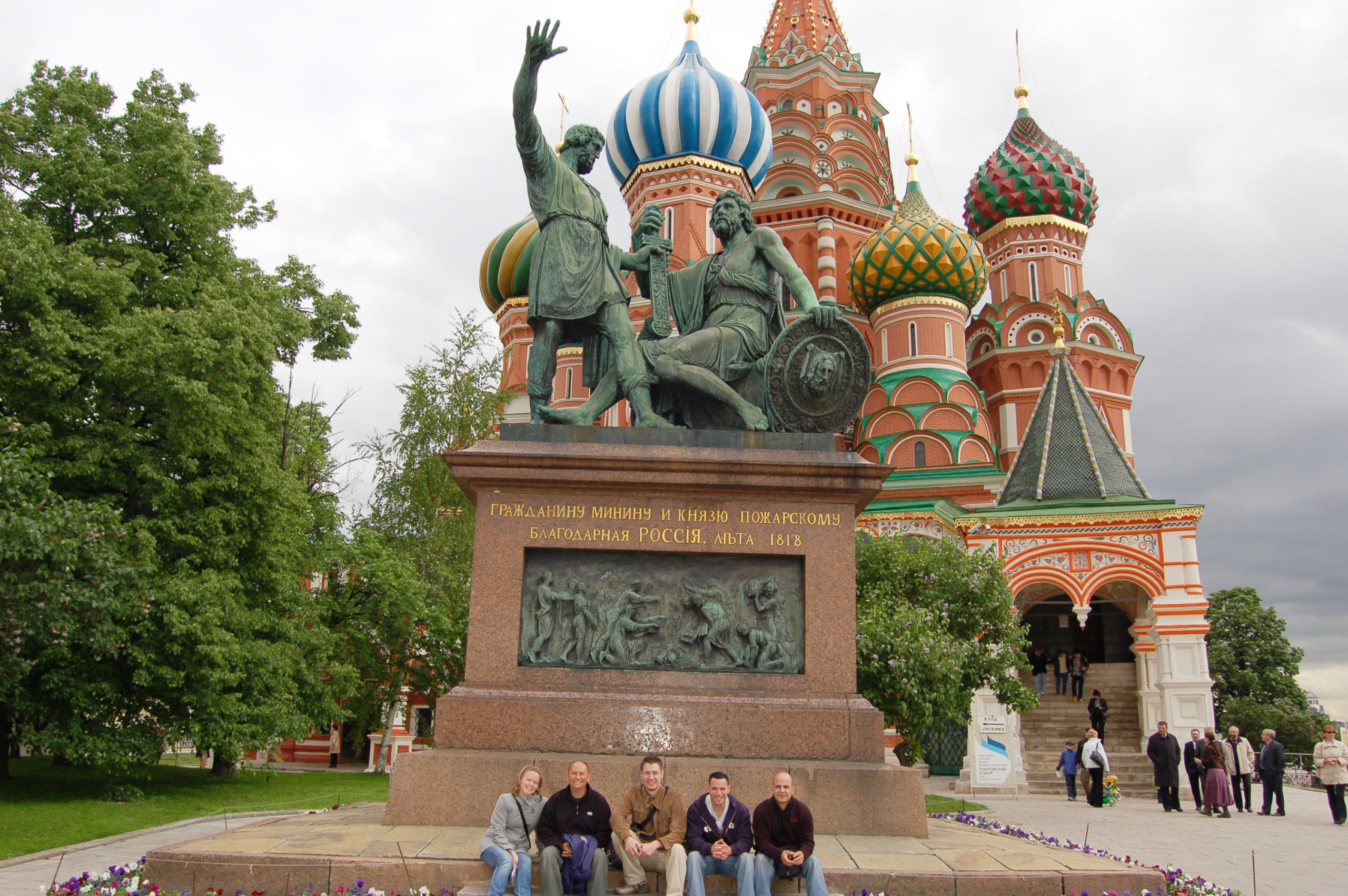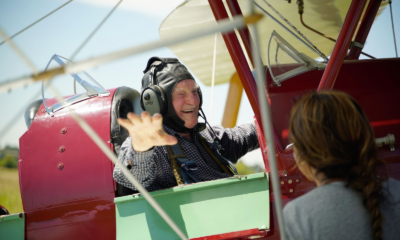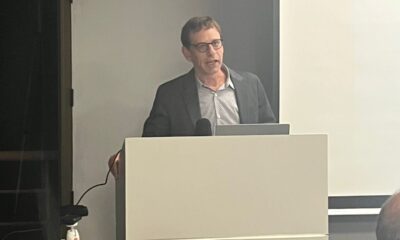
OpEds

Russia, where history keeps repeating itself
I loved my time in Russia.
Floating down the Moskva River with the smell of cooking chocolate swirling from the Red October Chocolate Factory. Meandering through Gorky Park, where the fallen statues of former communist leaders lay topped in the high grass of Russia’s new dawn.
In St Petersburg, exploring the still secret treasures of The Hermitage and steaming in a sweltering banya sauna, hitting each other with cold birch leaves which left festering red welts.
Like much of Russian history, everything includes pain and leaves a mark.
These were the early days of President Vladimir Putin. Russian oligarchs rode the cities in black Mercedes Benzes, a ton of steel beneath each vehicle to protect against bombs and assassination.
Russia was the Wild West, but the saloons served vodka, and on the stages, the ballerinas danced Swan Lake. Few knew that the Russian version of Tchaikovsky’s ballet ends not in hope, but in tragedy.
In Red Square, where people once queued for bread, they now stood in line for Louis Vuitton and Gucci. I expected a long wait to visit a pickled Vladimir Lenin lying in state, but no one seemed interested. The new Russia had no appetite for nostalgia.
Seventy-four years of communist rule had beaten religion out of much of the Soviet Union, and the Jewish community was struggling to emerge from its dark history of oppression. Denied the right to practice religion by their socialist overloads and deprived the right to leave the country to practice Judaism freely, the Russian Refusenik movement was born in the 1960s amongst those determined to stand up to their communist rulers and demand the right to emigrate to Israel.
In 1970, a group of 16 Refuseniks who had been refused the right to emigrate unsuccessfully hijacked an airplane, disguised as wedding guests, demanding to be flown out of Russia.
In 1973, a Ukrainian Jewish physicist and dissident named Anatoly Shcharansky, was arrested by the Soviet KGB and accused of high treason for passing a list of 1 300 Refuseniks to the West. Natan Sharansky (his Israeli name) once told me the story of how while in the Soviet Gulag, he would save pieces of candles and invite his KGB captors to sing Chanukah songs with him when he lit his candles on the Jewish festival.
As the plight of Soviet Jews became more desperate, international Jewry rallied to their support. Here in South Africa, Jewish students wore the names of Refuseniks on their wrists and attended conferences on Russian Jewry in Israel. My American friend, Yosef Abramowitz, would walk into Russian embassies and consulates and chain himself to their furniture in protest.
Integral to the international campaign to free Russian Jews was to leave an extra seat at the Passover seder table to remember the plight of those under the yoke of authoritarian control.
In the 1980s, with the event of glasnost (openness) and perestroika (reconstruction) introduced by the new Russian President Mikhail Gorbachev, things began to change.
In negotiations with people like South African businessman and philanthropist Mendel Kaplan, the chairperson of the Jewish Agency’s board of governors, Gorbachev agreed to free Soviet Jewry and release its political prisoners. As I house-sat the Kaplan’s home in Johannesburg, Kaplan would fly around the Soviet Union negotiating the release of the Union of Soviet Socialist Republic’s Jewish population.
Between 1989 and 2006, about 1.6 million Soviet Jews and their non-Jewish families and spouses left the Soviet Union, almost a million of them landing up in Israel and laying the foundation for the boom in Israeli technology and innovation.
With the release of “prisoners of Zion” like Natan Sharansky, Ida Nudel, and Yuli Edelstein, the campaign for Soviet Jewry was won.
Much has happened in the 33 years since the Berlin Wall fell. Russia became a functioning modern capitalist nation, albeit plagued by corruption, nepotism, and greed. But on 24 February 2022, all of that progress ended with the Russian invasion of Ukraine, its sovereign democratic neighbour to the south.
Under ever changing pretexts, Russia launched a brutal colonial war of occupation against its Slavic neighbour, led by its Jewish President, Volodymyr Zelenskyy, and its Jewish prime minister.
The scenes of devastation coming out of Ukraine are chilling. Russia has bombed hospitals, schools, churches, and apartment buildings. Some cities have literally been half destroyed. The devastation is incomprehensible. There are between 270 000 and 400 000 Jews still in Ukraine. Thankfully, the Jewish orphans supported by the Moshal family and Tikva have been brought out of Ukraine to safety.
As Russian forces withdrew from Bucha, on the outskirts of Kyiv, the Ukrainian capital, the bodies of civilians, many of them summarily executed with their hands tied behind their backs littered the streets. So far, 410 civilian bodies have been recovered in the town.
This year, the SA Jewish Report asks you, in the grand tradition of the fight for freedom for Soviet Jewry, to once again save a second seat at your Passover seder table to acknowledge the 4.2 million Ukrainian refugees who have fled their country and the 10 million people in Ukraine who have abandoned their homes, many of whom have no home to return to at all.
Take a moment at your seder table, as we commemorate our freedom and the exodus from slavery to emancipation in the land of Israel, to speak about freedom, what it means to you, and give a thought to those who will spend this Passover under fire in Ukraine.
As I wondered through Russia travelling on a train between Yaroslavl and St Petersburg, I spent the evening drinking vodka and cranberry juice with the commander of a Russian military platoon. He spoke no English and I, no Russian, yet alcohol lubricated the night.
As the railway bar closed in the early hours of the following morning, I wanted to leave him with a brocha (blessing). I called over an interpreter and asked him to translate my benediction. I said to him, “May you only know peace in your lifetime.”
The platoon commander was furious. His face turned red. He pointed a finger aggressively at my nose and dismissively said, “Peace is merely the illusion between battles.”
With that, he stormed from the dining car, back to his men.
As I turn on my television every night, I realise that maybe he was right!
- Howard Sackstein is chairperson of the SA Jewish Report.










